In an ever-evolving digital landscape, SEO remains a cornerstone of online visibility and success. As we step into 2024, the importance of SEO optimization for WordPress cannot be overstated. WordPress, renowned for its SEO-friendly features, continues to be a preferred platform for website creators. However, as search engines refine their algorithms, staying ahead in SEO requires adapting to the latest trends and best practices.
In this guide, we’ll explore the essentials of SEO optimization for WordPress in 2024. We’ll delve into why SEO remains crucial for WordPress users, the upcoming trends that will shape SEO strategies, and practical steps you can take to ensure your WordPress site ranks high on search engine results pages (SERPs).
Why WordPress for SEO in 2024?
WordPress’s popularity as a content management system is largely due to its inherent SEO advantages. The platform is designed to be search engine friendly, offering features like customizable permalinks, easy content creation, and a wide array of SEO plugins that further enhance optimization. In 2024, leveraging these features effectively can give WordPress sites a significant edge in search rankings.
Moreover, the WordPress community continuously contributes to improving its SEO capabilities. With regular updates and a vast ecosystem of themes and plugins, WordPress sites can stay aligned with the best SEO practices and algorithm changes.
Recommended Content: WordPress Installation Guide
Understanding the Basics of WordPress SEO in 2024
SEO in 2024 is not just about keywords and backlinks; it’s about providing a superior user experience, meeting the search intent, and aligning with Google’s emphasis on E-A-T (Expertise, Authoritativeness, and Trustworthiness). For WordPress site owners, this means creating high-quality content, ensuring your site is technically sound, and building a digital presence that is recognized as authoritative in your niche.
Key SEO fundamentals for 2024 include:
- Mobile-first indexing: With the majority of web traffic coming from mobile devices, ensuring your WordPress site is mobile-friendly is non-negotiable.
- Page speed: A fast-loading site improves user experience and positively impacts your search rankings. Optimizing images, using caching, and minimizing code bloat are crucial steps.
- Content quality: Beyond keywords, your content must be informative, well-structured, and aligned with user intent. Utilizing AI and other tools can help enhance content relevance and engagement.
By understanding these basics and how they apply to WordPress, you can create a solid foundation for your SEO strategy in 2024.

Key SEO Trends in 2024 for WordPress Sites
As we navigate through 2024, staying updated with the latest WordPress SEO trends is essential for any WordPress site owner looking to enhance their online visibility. The dynamic nature of search engines means that what worked yesterday might not be as effective today. Here, we’ll dive into the key SEO trends that WordPress users need to be aware of in 2024.
AI and Machine Learning
Artificial Intelligence (AI) and machine learning are increasingly influencing how search engines understand and rank content. For WordPress site owners, this means adopting AI-powered tools and plugins to optimize content, improve user engagement, and analyze user behavior. Tools like AI content analyzers can provide insights into how well your content aligns with search intent and user needs.
Voice Search Optimization
With the rise of smart speakers and virtual assistants, voice search is becoming a significant factor in SEO. WordPress sites need to optimize for conversational keywords and ensure their content can be easily interpreted by voice search algorithms. This involves structuring content in a more natural, conversational manner and focusing on long-tail keywords that align with spoken queries.
Visual Search and Image Optimization
Visual search technology allows users to search using images instead of words. WordPress sites can optimize for visual search by ensuring all images are high-quality, properly tagged, and accompanied by descriptive, keyword-rich alt text. Implementing structured data to provide context for images can also enhance your site’s visibility in visual search results.
E-A-T and Content Quality
Expertise, Authoritativeness, and Trustworthiness (E-A-T) continue to be crucial factors in SEO. WordPress site owners should focus on producing high-quality content that demonstrates their expertise, builds authority, and earns trust. This includes citing reputable sources, showcasing credentials, and providing clear, accurate, and useful information to users.
Core Web Vitals and User Experience
Google’s Core Web Vitals are a set of specific factors that Google considers important in a webpage’s overall user experience. WordPress sites should optimize for these factors, which include loading performance, interactivity, and visual stability, to improve rankings. Using themes and plugins that adhere to best practices for speed and responsiveness can significantly help in meeting these criteria.
By keeping abreast of these trends and implementing the necessary optimizations on your WordPress site, you can improve your search engine rankings and stay competitive in the digital landscape of 2024.
How to Optimize Your WordPress Site for Google’s Latest Algorithm
Optimizing your WordPress site for Google’s latest algorithm updates is crucial to maintaining and improving your search rankings. As search algorithms evolve, they become more sophisticated, focusing more on user experience and content quality. In 2024, staying ahead means adapting to these changes proactively. Here’s how you can optimize your WordPress site to align with the latest trends and algorithm updates.
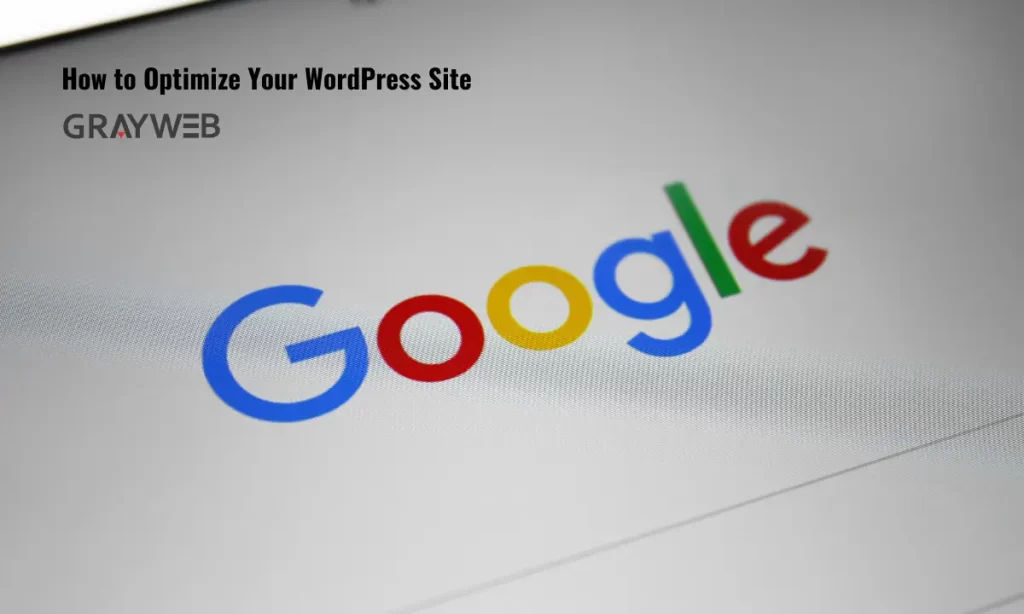
Adapt to AI and Natural Language Processing (NLP) Changes
Google’s algorithms increasingly leverage AI and NLP to understand and rank content. For WordPress site owners, this means creating content that’s not only SEO-friendly but also natural and user-focused. Use tools that help analyze and optimize your content for readability, engagement, and relevance. Ensuring your content answers users’ questions thoroughly and contextually can improve its alignment with NLP criteria.
Improve E-A-T Signals
Your site’s Expertise, Authoritativeness, and Trustworthiness (E-A-T) are more critical than ever. To optimize for these factors, ensure your content is written by or reviewed by experts in your field. Display clear author bios with credentials, cite authoritative sources, and gather quality backlinks to enhance your site’s authority and trustworthiness.
Leverage Structured Data
Structured data helps search engines understand your content and site structure better, often leading to enhanced listings in search results (like rich snippets). Use WordPress plugins that help you implement structured data easily across your site. This can improve your visibility in search results and increase click-through rates.
Focus on Core Web Vitals
Core Web Vitals are a set of specific factors important to a webpage’s user experience. Optimizing these on your WordPress site can significantly impact your rankings. Focus on:
- Largest Contentful Paint (LCP): Improve loading times by optimizing images, using a fast hosting provider, and minimizing CSS and JavaScript.
- First Input Delay (FID): Optimize interactivity by reducing JavaScript execution times and ensuring your site is responsive.
- Cumulative Layout Shift (CLS): Enhance visual stability by avoiding shifting layouts during loading.
Mobile-First Indexing
With Google’s mobile-first indexing, your WordPress site must be optimized for mobile users. Ensure your theme is responsive, compress images to speed up loading times, and prioritize navigation and content readability on smaller screens.
Regularly Audit and Update Your Content
Regularly review your WordPress site’s content to ensure it remains relevant, accurate, and aligned with the latest SEO practices. Update outdated content, remove or revise underperforming pages, and ensure all content provides value to your users.
By implementing these strategies, you can optimize your WordPress site to perform well under Google’s latest algorithm, enhancing your visibility and attracting more organic traffic in 2024.
Essential SEO Plugins for WordPress in 2024
In the ever-evolving world of SEO, having the right tools can significantly enhance your WordPress site’s performance and rankings. As we delve into 2024, several WordPress SEO plugins stand out for their effectiveness, ease of use, and comprehensive features. Here’s a look at essential SEO plugins that can help you optimize your site efficiently.
Rank Math
Rank Math is a fast-growing SEO plugin that provides an intuitive setup wizard and smart automation features to help you optimize your site with ease. It offers detailed insights into your content and suggests improvements, helping you make informed decisions to boost your SEO. With its modular framework, you can tailor the plugin’s features to your site’s specific needs.

Yoast SEO
Yoast SEO remains a top choice for WordPress site owners, offering a robust set of features to optimize your site. It provides comprehensive tools for managing titles and meta descriptions, generating XML sitemaps, and improving your content’s readability and SEO score. The 2024 version continues to evolve with updated algorithms, ensuring your site stays in tune with the latest SEO practices.
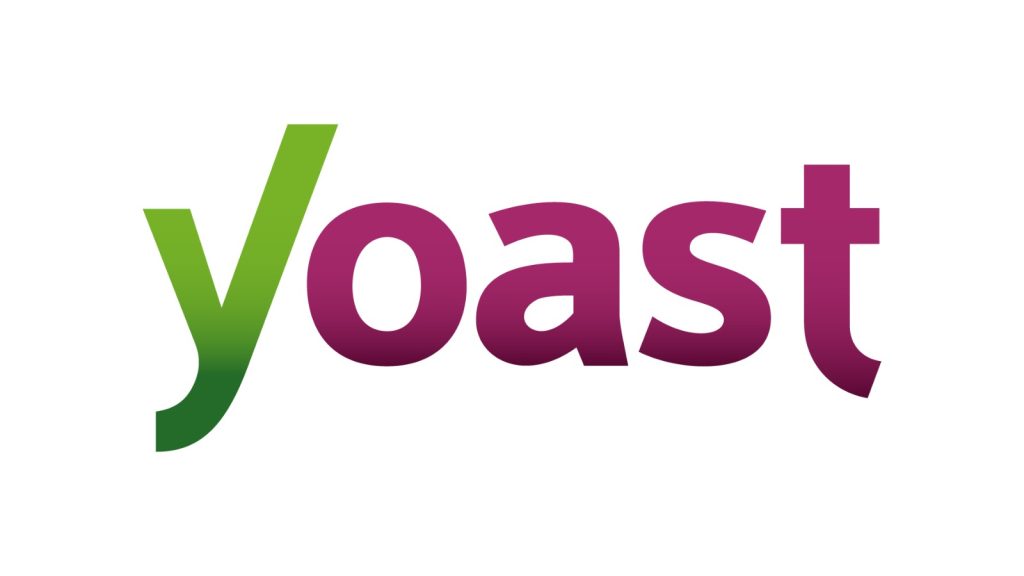
All in One SEO Pack
All in One SEO Pack is another versatile plugin that offers a wide range of functionalities to optimize your WordPress site. From automatically generating meta tags to optimizing titles for search engines and integrating with various social media platforms, this plugin covers all bases to enhance your site’s SEO.
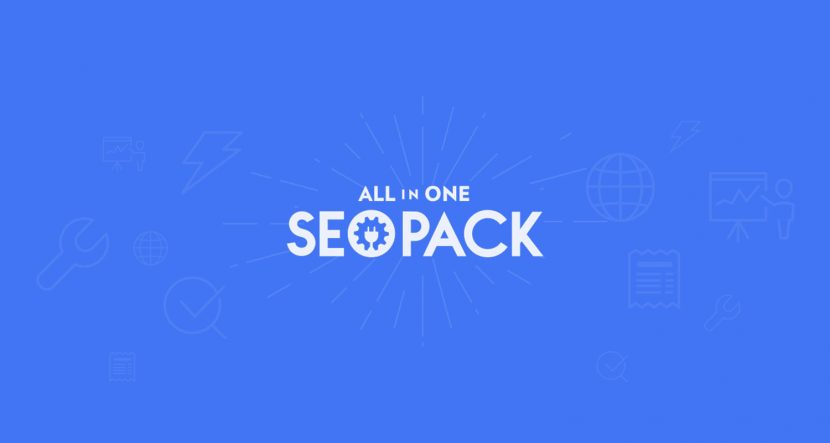
SEMrush SEO Writing Assistant
SEMrush SEO Writing Assistant is a powerful tool for content creators, providing real-time guidance on content optimization based on best SEO practices. It offers suggestions for improving readability, enhancing vocabulary, and maintaining the right tone, ensuring your content is both user-friendly and SEO-optimized.

WP Rocket
While not a traditional SEO plugin, WP Rocket significantly impacts your site’s SEO by improving its performance and loading speed. Fast-loading pages are crucial for SEO, and WP Rocket optimizes your site’s speed without requiring technical expertise, making it an invaluable addition to your SEO toolkit.
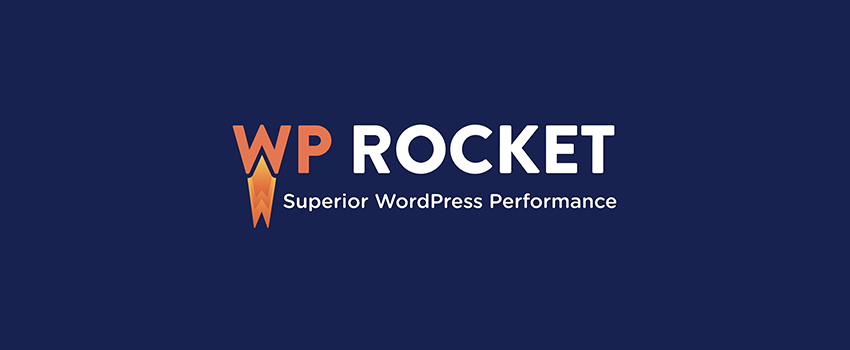
Schema Pro
Schema Pro allows you to add rich snippets to your website, enhancing your site’s appearance in search results. By providing search engines with precise information about your content, Schema Pro can improve your click-through rates and site visibility.
By leveraging these essential SEO plugins for WordPress in 2024, you can streamline your SEO efforts, automate complex tasks, and focus on creating content that resonates with your audience and ranks well in search engines.

Structuring Your WordPress Site for Maximum SEO Benefit
The structure of your WordPress site plays a critical role in its SEO performance. A well-organized site helps search engines understand your content and index it more effectively, which can lead to better rankings. In 2024, ensuring your site is logically structured and easy to navigate is more important than ever. Here’s how you can structure your WordPress site for maximum SEO benefit.
Logical Hierarchy and Silo Structure
Organize your site into a clear hierarchy that reflects the nature of your business or blog. Main categories should be broad, with subcategories and individual pages/posts branching off logically. This silo structure helps search engines and users find content more efficiently and understand the relationships between different pieces of content.
Permalinks
Ensure your WordPress permalinks are set to include the post name or category and post name. This structure is more SEO-friendly as it can include keywords and is easier for users to understand. Avoid using dates or numbers in URLs unless they are relevant to your content.
Navigation and Menus
Your site’s navigation should be intuitive and straightforward. Use menus to guide users to important sections of your site and ensure all critical content is no more than a few clicks away from the homepage. Breadcrumb navigation can also enhance user experience and SEO by providing clear paths through your site.
Internal Linking
Internal linking is a powerful SEO tool that helps spread link equity throughout your site and improves usability. Link to important pages often and use descriptive anchor text that reflects the target page’s content. This not only helps search engines index your site more effectively but also keeps users engaged and reduces bounce rates.
Mobile Responsiveness
With mobile-first indexing, having a mobile-responsive website is non-negotiable for SEO. Ensure your WordPress theme is responsive, meaning it adapts smoothly to different screen sizes. Test your site on various devices and browsers to ensure all users have a positive experience.
Speed Optimization
Site speed is a crucial factor in both user experience and SEO. Use tools like WP Rocket or W3 Total Cache to improve loading times. Compress images, minimize CSS and JavaScript, and leverage browser caching to enhance performance.
Regular Maintenance and Updates
Keep your WordPress site, themes, and plugins updated to ensure optimal performance and security. Regularly check for broken links, outdated content, and other issues that could impact your SEO.
By structuring your WordPress site effectively and paying attention to these key areas, you can create a solid foundation that supports both your SEO efforts and provides a great user experience.
On-Page SEO Techniques for WordPress Users
On-page SEO is crucial for making your WordPress website visible in search engine results. It involves optimizing individual web pages to rank higher and earn more relevant traffic. In 2024, with search engines becoming smarter and competition steeper, effective on-page SEO techniques are vital. Here’s how you can optimize your WordPress pages for better visibility and performance.
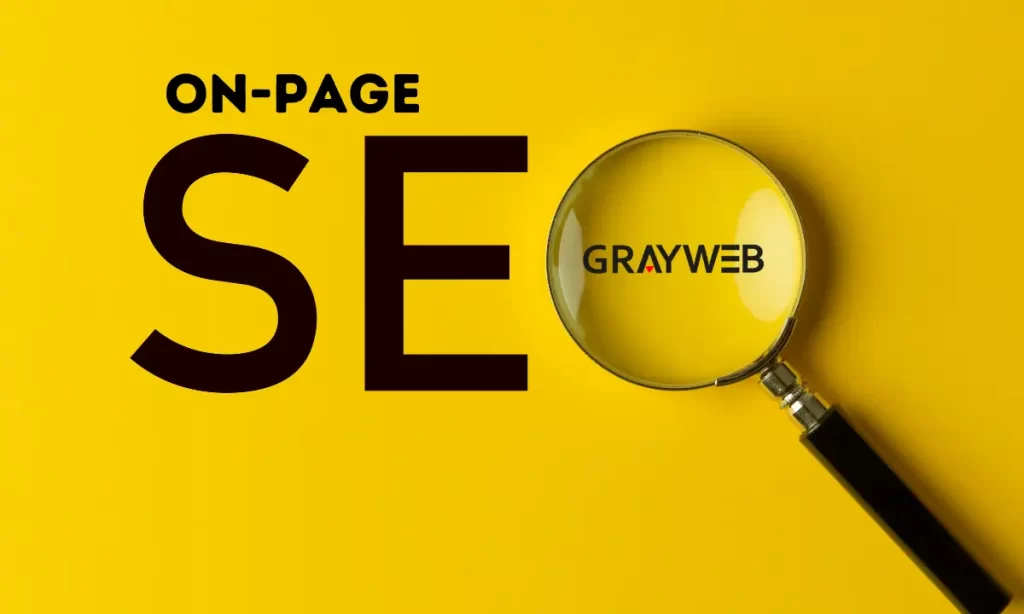
Optimize Your Titles and Descriptions
Your title tags and meta descriptions are among the first things a search engine and potential visitors see. Ensure your titles are concise, include main keywords, and accurately describe the page content. Meta descriptions should provide a clear and enticing summary of the page, encouraging users to click through from the search results.
Utilize Headings Properly
Headings help structure your content, making it easier for readers and search engines to understand the main points of your page. Use H1 tags for your main title, H2s for main subsections, and H3s or H4s for additional subsections. Include relevant keywords in your headings, but keep them natural and useful for the reader.
Optimize Your Content
Content is king in the SEO world, and its quality directly impacts your site’s ranking and user engagement. Ensure your content is original, informative, and provides value to your audience. Use keywords naturally throughout the text, include variations and long-tail keywords, and avoid keyword stuffing.
Optimize Images
Images can enhance user engagement and contribute to SEO. Use descriptive, keyword-rich file names and alt text for every image. This not only helps visually impaired users but also allows search engines to better understand and index your content. Compress images to speed up loading times without sacrificing quality.
Improve URL Structure
Simple, descriptive URLs are more effective for both users and search engines. Include keywords and keep URLs short and relevant to the page content. Avoid using unnecessary parameters or numbers that don’t convey meaning.
Mobile Optimization
Ensure your website is mobile-friendly, as a significant portion of web traffic comes from mobile devices. Google uses mobile-first indexing, so your site’s mobile version impacts your rankings. Use responsive design, optimize for touch navigation, and test your site on various devices.
Speed and Performance Optimization
Page loading speed is a critical SEO factor. Slow pages can lead to higher bounce rates and lower rankings. Optimize your WordPress site’s speed by using caching plugins, optimizing images, and minimizing the use of heavy themes and plugins.
Use Internal Linking Strategically
Internal links help search engines discover new pages and understand the structure of your site. They also keep users engaged and encourage them to explore more content. Use relevant anchor text and link to related posts and pages within your site.
By implementing these on-page SEO techniques, you can enhance your WordPress site’s visibility, user experience, and overall performance in search engine results.
Off-Page SEO Strategies for WordPress Sites in 2024
While on-page SEO focuses on optimizing elements within your website, off-page SEO involves strategies outside your site that influence your rankings within search engine results pages (SERPs). In 2024, off-page SEO remains a critical factor for WordPress site owners aiming to enhance their online presence and authority. Here’s how you can execute effective off-page SEO strategies for your WordPress site.
Build High-Quality Backlinks
Backlinks, or inbound links from other websites, are a cornerstone of off-page SEO. They signal to search engines that other websites consider your content valuable and authoritative. Focus on earning high-quality backlinks from reputable sites in your industry by:
- Creating shareable, high-quality content that naturally attracts links.
- Guest blogging on respected sites in your niche, providing value to their audience.
- Participating in industry forums or discussions and including your website in your profile or signature (when allowed).
Social Media Engagement
While social media signals are not a direct ranking factor, they can amplify your content’s reach and lead to more backlink opportunities. Regularly share your content on social media platforms, engage with your audience, and participate in relevant conversations to increase your content’s visibility and shareability.
Influencer Outreach
Collaborating with influencers can help broaden your content’s reach and earn backlinks. Identify influencers in your niche who align with your brand values and have an engaged audience. Collaborate on content, product reviews, or joint events to leverage their influence and gain visibility.
Local SEO
For businesses with a physical location or a local target audience, local SEO is crucial. Ensure your WordPress site is optimized for local search by:
- Claiming your Google My Business listing and keeping your information up-to-date.
- Encouraging satisfied customers to leave positive reviews.
- Including local keywords in your website content and meta tags.
- Building local backlinks from community sites, local business directories, or sponsoring local events.
Brand Mentions
Unlinked brand mentions can also influence your site’s authority. Monitor the web for mentions of your brand, and reach out to request a link where appropriate. Tools like Google Alerts or Mention can help you track your brand mentions across the web.
Content Marketing
Beyond your website, creating and distributing valuable content on other platforms can drive traffic and build your site’s authority. Consider publishing white papers, reports, or eBooks, and share your expertise on platforms like LinkedIn Pulse or Medium.
By implementing these off-page SEO strategies, you can enhance your WordPress site’s authority, improve your search rankings, and drive more organic traffic to your site.
Mobile Optimization in WordPress for 2024 SEO
As we move further into the digital age, mobile optimization has become increasingly crucial for SEO success. In 2024, with the majority of internet users accessing the web via mobile devices, ensuring your WordPress site is fully optimized for mobile is essential. Here’s how to ensure your WordPress site is up to par with mobile SEO standards.
Responsive Design
Your WordPress site must feature a responsive design, automatically adjusting its layout and content to fit different screen sizes and resolutions. A responsive theme ensures that your website is accessible and user-friendly across all devices, which is a key factor in mobile SEO and user experience.
- Choose a responsive WordPress theme that adapts seamlessly to different devices.
- Test your website’s responsiveness using tools like Google’s Mobile-Friendly Test.
- Ensure that navigation elements, images, and content scale and reposition appropriately on mobile devices.
Speed Optimization for Mobile
Mobile users expect fast loading times, and search engines prioritize fast-loading sites in their rankings. To optimize your WordPress site for mobile speed:
- Compress images and use modern formats like WebP.
- Minimize the use of heavy plugins and scripts that can slow down loading times.
- Consider implementing AMP (Accelerated Mobile Pages) for a streamlined, fast-loading version of your web pages.
Touch-Friendly Design
Ensure that all interactive elements on your website are easy to use on a touch screen. Buttons, links, and navigation menus should be adequately sized and spaced to prevent mis-taps.
- Use touch-friendly sliders and carousels.
- Ensure that forms are easy to fill out on mobile devices.
- Test your site’s touch responsiveness to identify and resolve any issues.
Mobile-First Content and SEO
When creating content and optimizing for SEO, adopt a mobile-first approach. This means considering how content will appear and perform on mobile devices first, rather than treating it as an afterthought.
- Structure content with shorter paragraphs and more accessible readability on smaller screens.
- Place key information and calls-to-action above the fold to ensure they’re immediately visible on mobile devices.
- Optimize titles and meta descriptions for mobile, keeping character limits in mind.
Local SEO for Mobile
For businesses targeting local customers, optimizing for local search on mobile is crucial. Many mobile searches have local intent, so ensure your site is optimized to appear in local search results.
- Include location-based keywords in your content and meta tags.
- Ensure your Google My Business listing is claimed, accurate, and complete.
- Encourage customers to leave reviews on your Google My Business profile.
By prioritizing mobile optimization for your WordPress site, you’ll not only improve your SEO performance but also provide a better user experience for the growing number of mobile internet users in 2024.
Speed Optimization: Making Your WordPress Site Lightning Fast
Website speed is a critical factor in SEO and user experience. In 2024, with increasingly high user expectations for fast web experiences and search engines like Google emphasizing site speed in their ranking algorithms, optimizing your WordPress site’s speed is more important than ever. Here are actionable steps to make your WordPress site lightning fast.
Choose a High-Performance Hosting Provider
Your hosting service plays a significant role in your site’s performance. Invest in a reliable, high-performance hosting provider that offers fast server response times and optimized configurations for WordPress.
- Consider managed WordPress hosting services that offer optimized server environments for WordPress.
- Evaluate hosting providers based on performance reviews and benchmarks.
- Look for hosts with servers in or near your target audience’s location to reduce latency.
Use a Lightweight Theme
The theme you choose can significantly impact your site’s speed. Select a lightweight, well-coded theme optimized for speed and performance.
- Avoid themes bloated with unnecessary features and scripts.
- Test the theme’s demo for speed before committing.
- Regularly update your theme to benefit from performance improvements and fixes.
Optimize Images
Images are often the largest files on web pages, significantly affecting loading times. Optimize your images to reduce their size without compromising quality.
- Compress images using tools like TinyPNG or use WordPress plugins that automate image optimization.
- Resize images to the dimensions they will be displayed at on your website.
- Use modern image formats like WebP that offer superior compression and quality.
Leverage Caching
Caching stores a static version of your site’s pages and serves them to visitors, reducing the need to load each page from scratch on every visit.
- Use caching plugins like WP Rocket or W3 Total Cache to implement various caching mechanisms.
- Configure browser caching to instruct visitors’ browsers to store frequently accessed resources locally.
Minimize and Combine Files
Reduce the number and size of CSS, JavaScript, and HTML files. Smaller and fewer files mean fewer requests, which can decrease load times.
- Use plugins like Autoptimize to minify and combine files.
- Eliminate unnecessary plugins and scripts that add extra files to your site.
Use a Content Delivery Network (CDN)
A CDN stores copies of your site’s assets on servers around the world, reducing the distance data needs to travel to reach your visitors.
- Choose a CDN provider and integrate it with your WordPress site.
- Ensure static content like images, CSS, and JavaScript files are served through the CDN.
Regularly Monitor and Test Your Site’s Speed
Continuously monitor your site’s performance and address any issues promptly.
- Use tools like Google PageSpeed Insights, GTmetrix, or Pingdom to test your site’s speed regularly.
- Analyze the reports to identify bottlenecks and areas for improvement.
By implementing these speed optimization strategies, you can significantly enhance your WordPress site’s performance, improving both user experience and SEO rankings in 2024.
Content Strategies for SEO Success in WordPress
Content is a pivotal element of SEO, and in 2024, it continues to reign supreme in determining the success of your WordPress site in search engine rankings. Creating and implementing a robust content strategy is crucial for driving organic traffic, engaging users, and establishing authority. Here are key content strategies to elevate your WordPress site’s SEO success.
Understand Your Audience and Their Search Intent
Knowing your audience and what they are searching for is the foundation of a successful content strategy. Use tools like Google Analytics, SEMrush, or Ahrefs to research and understand the keywords and topics that resonate with your audience.
- Analyze search intent behind the keywords to create content that meets users’ needs.
- Segment your audience and tailor content to address different user intents, whether informational, navigational, commercial, or transactional.
Create High-Quality, Relevant Content
Quality content is informative, engaging, and valuable to your audience. It’s also favored by search engines for top rankings.
- Ensure your content is well-researched, fact-checked, and offers real value to your readers.
- Regularly update your content to keep it fresh and relevant.
- Use various content formats such as blog posts, videos, infographics, and podcasts to engage different audience segments.
Optimize for Keywords Strategically
While keyword stuffing is a relic of the past, strategic keyword optimization remains essential. Place keywords thoughtfully throughout your content, including titles, headings, meta descriptions, and naturally within the text.
- Focus on long-tail keywords and semantic variations to capture a broader range of search queries.
- Use tools like Yoast SEO to ensure your content is optimized effectively for your target keywords.
Enhance Readability and User Experience
Content readability is crucial for user engagement and SEO. Content that’s easy to read and understand can lead to lower bounce rates and longer dwell times, which are positive signals to search engines.
- Break up text with headings, subheadings, bullet points, and images to improve readability.
- Maintain an active voice and use language that resonates with your audience.
Incorporate Internal and External Linking
Links are the lifeblood of the web. Incorporating internal links helps distribute page authority throughout your site and keeps users engaged. External links to authoritative sources can enhance the credibility and depth of your content.
- Use descriptive anchor text that provides insight into the linked page’s content.
- Ensure external links open in a new tab to keep users on your site.
Leverage Content Analytics for Insights
Regularly monitor your content’s performance using analytics tools. Understand what works, what doesn’t, and why by analyzing metrics like page views, bounce rate, and conversion rate.
- Adjust your content strategy based on data-driven insights.
- Perform A/B testing on different content styles or formats to determine what best resonates with your audience.
Implementing these content strategies can significantly improve your WordPress SEO performance, drive more traffic, and increase engagement on your WordPress site. Remember, content is not just king; it’s the cornerstone of a successful SEO and digital marketing strategy.
Use /continue to proceed with the next section: Essential SEO Plugins for WordPress in 2024.






[…] Recommended Content: WordPress SEO Optimization […]
[…] Recommended Content: The Importance of SEO Optimization for WordPress in 2024 […]